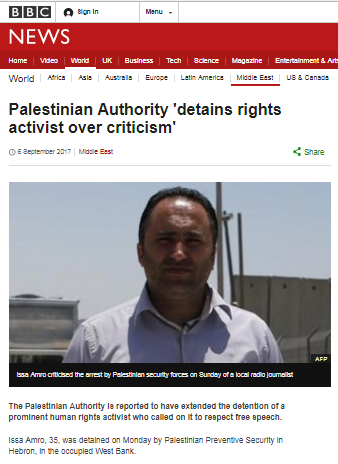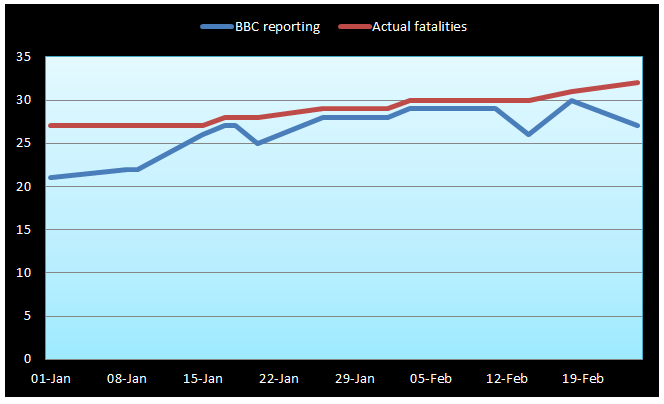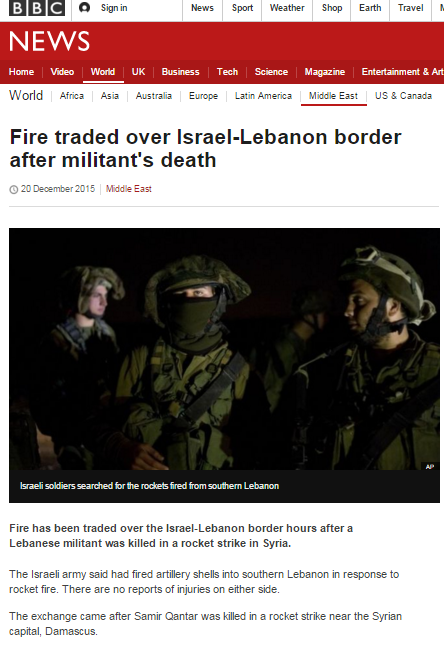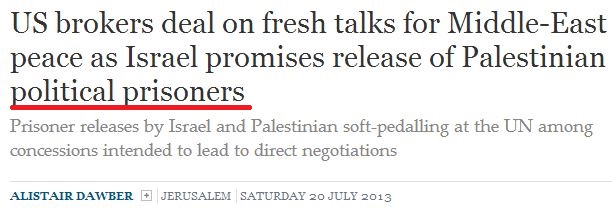The BBC’s reputation as a reliable source – underpinned by a supposedly unwavering commitment to cast-iron accuracy and impartiality in its reporting – means that members of the public, researchers and educators regard its content as being an authoritative record. The BBC itself relates to its online archive content as “historical record” and its Director of Editorial Policy and Standards has stated that “[h]owever long ago our online content was first published, if it’s still available, editorial complaints may legitimately be made regarding it”.
Mr Jordan might therefore care to consider a report by the BBC Jerusalem Bureau’s Kevin Connolly (available from 00:43 here) which was broadcast in the October 24th edition of the BBC Radio 4 programme ‘From Our Own Correspondent”.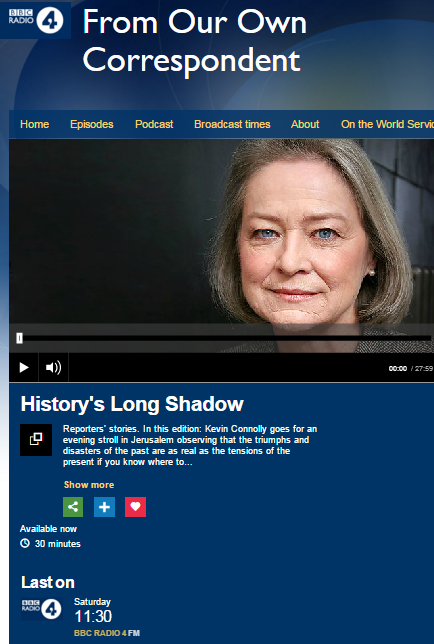
Ostensibly providing listeners with a historical angle to the current wave of terror in Israel, Connolly’s report is remarkable for the fact that it once again promotes the notion that the attacks are of a “random and spontaneous nature”, ignoring the issue of incitement and the growing number of cases in which perpetrators have been shown to have links to terrorist organisations.
Concurrently, Connolly’s messaging for listeners includes the employment of statements such as:
“…the readiness with which Israel’s security forces resort to lethal force against Palestinians”
And, referring to checkpoints outside the Jerusalem neighbourhoods from which a very significant proportion of the attackers have come:
“….the sense that restrictions on movement are a form of collective punishment”.
But Connolly’s politically motivated framing of the story reaches its zenith in his inaccurate portrayal of the history of Jerusalem.
“Even the British – eternally torn between the desire to have an empire and the desire to have an empire on the cheap – left some kind of mark.”
“British rule lasted more than thirty years in the Holy Land.”
Mandate Palestine was not of course part of the British Empire, as Connolly implies in those two proximate statements. Britain indeed administered the Mandate for Palestine, but that mandate was established (along with several others) by the League of Nations with the specific aim of reconstituting a Jewish national home: a task which the administrator did not complete in the years before it returned that mandate to the League of Nations’ successor, the United Nations, on May 14th 1948.
Having distorted one very relevant part of the history by erasing the Mandate for Palestine from audience view, Connolly then goes on to promote a blatant factual inaccuracy.
“The British left in 1948, leaving the Arab kingdom of Jordan in control of East Jerusalem and the Old City and West Jerusalem in Israeli hands.”
The uninformed listener would obviously take that statement to mean that Jordanian control over parts of Jerusalem was both recognised and perfectly legitimate: the result of their having been handed over to it by the previous ‘landlord’.
Despite having erased from the picture the fact that Jordanian occupation of parts of Jerusalem actually came about by means of a belligerent invasion of Israel by Jordan (together with four other Arab nations) immediately following Britain’s abandonment of its role as administrator of the League of Nations mandate and Israel’s declaration of independence, Connolly goes on to include a demilitarized zone (surely unexplainable according to his version of events) in his story.
“The route I follow crosses what was then an edgy and dangerous DMZ – a demilitarized zone across which Israel and the Arab world contemplated each other in mutual hostility.”
He proceeds, erasing yet another episode of Jordanian belligerence from his account:
“In the war of 1967 Israel crossed the DMZ and drove the Jordanians out of the Old City and out of East Jerusalem. The victory brought the holy places – the Christian Church of the Holy Sepulchre, the Jewish Western Wall and the Islamic al Aqsa compound – under Israeli control, where they remain to this day.” [emphasis added]
Here we have yet another example (previous recent ones can be seen here, here and here) of the BBC’s adoption and promotion of the inaccurate narrative whereby all of Temple Mount is al Aqsa and Connolly even portrays the site as exclusively “Islamic” – despite the fact that it is of significance to members of three religions.
He continues:
“…the victory of 1967 brought the Arab population of East Jerusalem and dozens of outlying villages which had belonged to Jordan under Israeli military occupation.” [emphasis added]
Of course those locations were in fact under Jordanian occupation and their later annexation by Jordan was not recognized by the international community, meaning that Connolly’s claim that they “belonged to Jordan” is inaccurate and misleading.
The take-away message promoted to listeners to this report is that the roots of the current wave of violence are to be found in the Israeli occupation of areas that previously belonged to “the Arab kingdom of Jordan”. Not only is that an inaccurate portrayal but in order to frame the story in such a way, Connolly distorts and erases the history of the region in a manner which actively hinders audience understanding of the wider issue.
Given that this report potentially risks wasting public resources by becoming the subject of editorial complaints, the BBC clearly needs to issue prompt corrections to the plethora of inaccuracies promoted by Kevin Connolly.
Resources:
BBC Radio 4 – contact details
‘From Our Own Correspondent’ on Twitter

